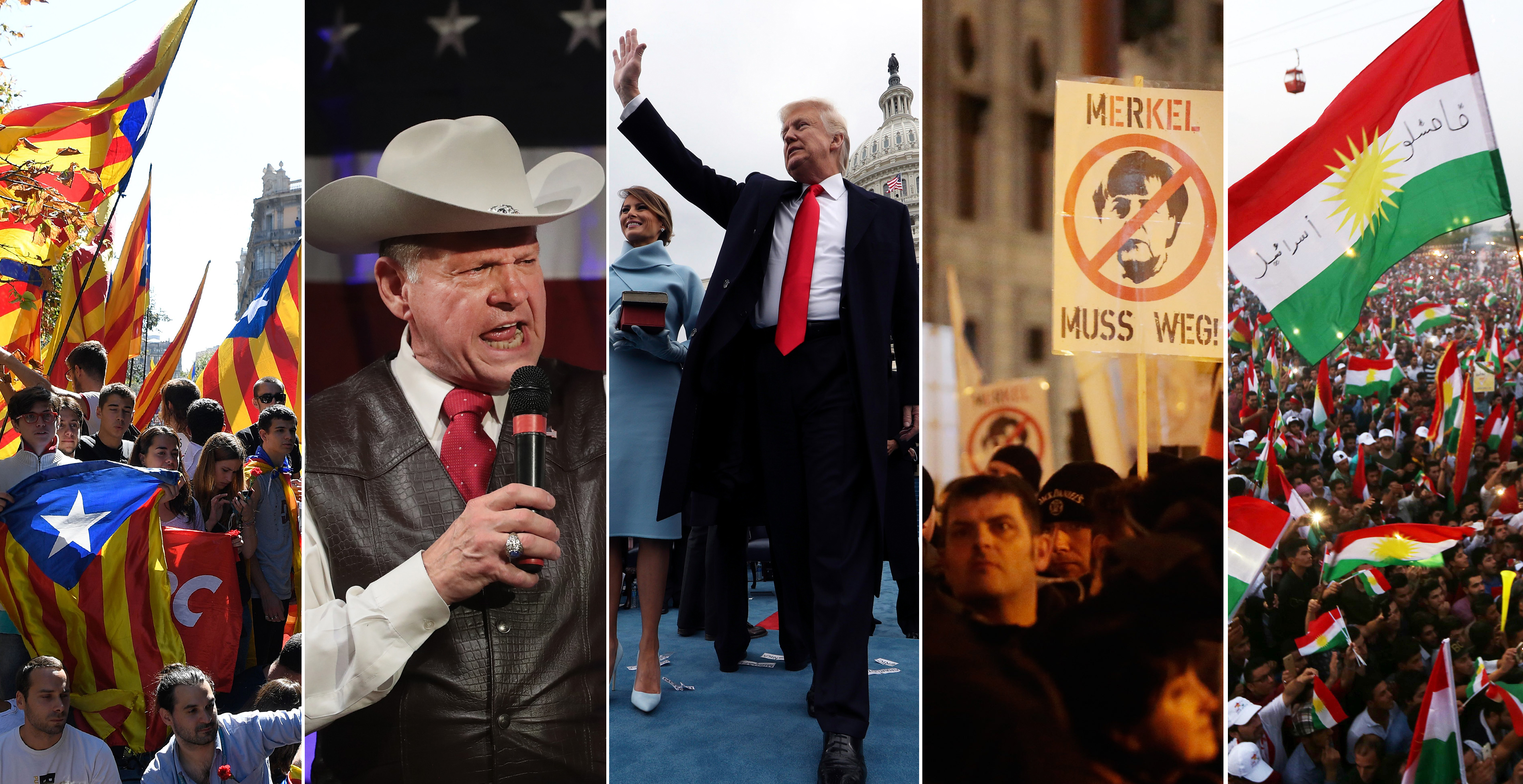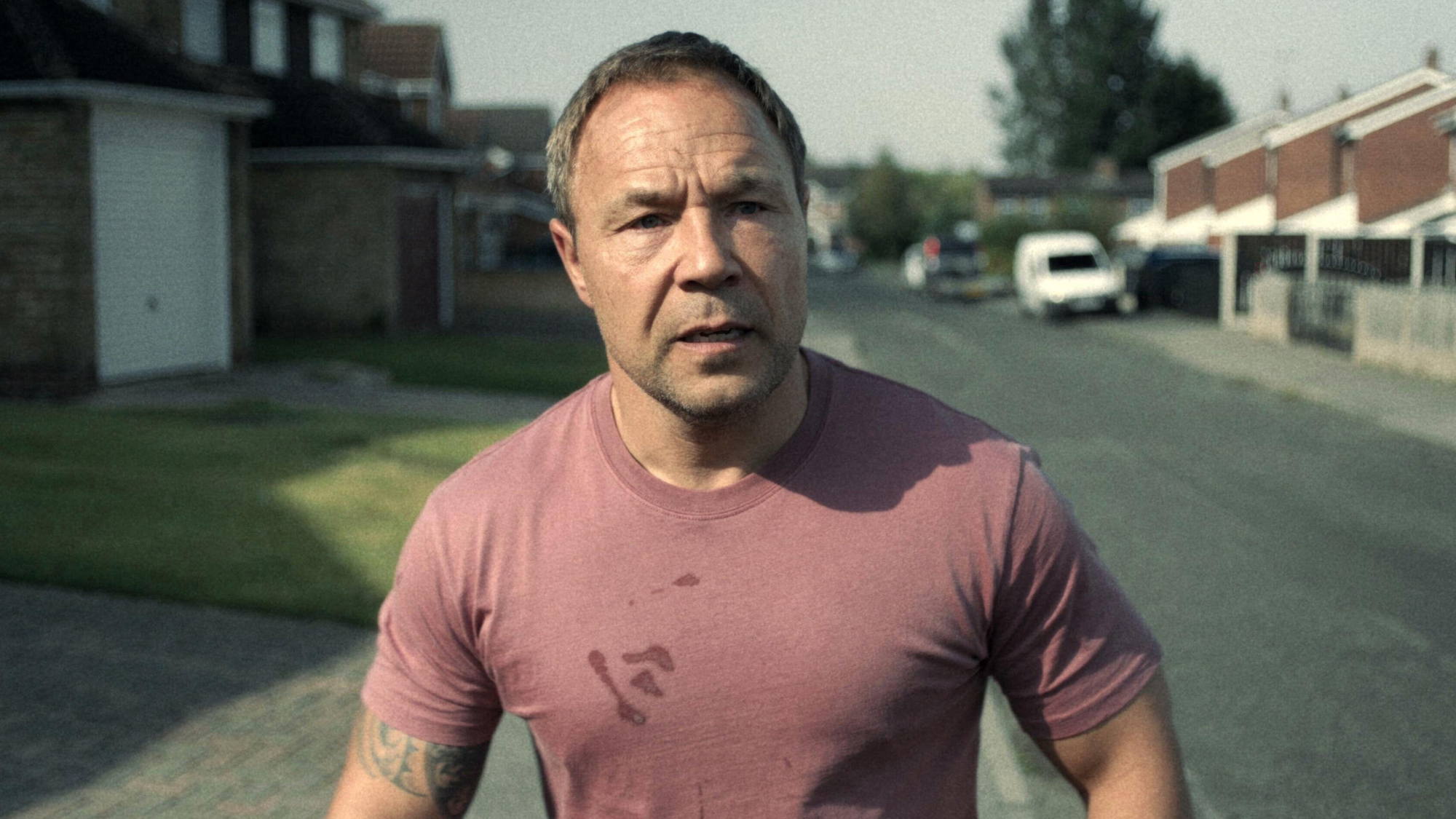The disintegration of the liberal dream
Wake up, everyone


It's time for liberals to wake up from their utopian dreams. Because the ferocious politics that they'd hoped were relegated to the dustbins of history are back.
I don't mean politics understood as administrative problem-solving by barely distinguishable center-left and center-right parties. That technocratic style of politics has been the norm throughout the West (and beyond) since at least the late 1980s, when the Cold War came to an end, seeming to leave centrist liberalism as the only game in town.
What's back, from Alabama to Germany, Spain, and Iraq, is the original, more savage, destabilizing style of politics that centrist liberalism was originally devised to dissolve and supplant. This centrist liberalism wasn't dreamed up in a strategy memo at the Democratic Leadership Council in 1991. It was first envisioned in the writings of such 17th- and 18th-century thinkers as Thomas Hobbes, John Locke, Montesquieu, and the American constitutional framers. All of them hoped that politics in the original sense could be tamed, de-radicalized, hemmed in, and replaced to a considerable extent by a new, more "liberal" form of association — one less prone to produce absolutist tyranny and the threat of revolution on the one hand, or devolve into bloody civil war on the other.
The Week
Escape your echo chamber. Get the facts behind the news, plus analysis from multiple perspectives.

Sign up for The Week's Free Newsletters
From our morning news briefing to a weekly Good News Newsletter, get the best of The Week delivered directly to your inbox.
From our morning news briefing to a weekly Good News Newsletter, get the best of The Week delivered directly to your inbox.
In place of politics understood as a contest for power among factions divided over conflicting notions of justice and the good life, liberal politics would concern itself with securing a minimum of peace, security, and economic prosperity, while channeling the pursuit of different ways of life into the private sphere of people's lives, where the disagreements would be less likely to escalate into deadly violence.
This liberal dream has waxed and waned down through the centuries, as more and more political communities have instituted versions of minimalist liberal politics. The U.S. was one of the first countries to attempt it, and also one in which a major public conflict erupted (a bloody civil war over slavery), demonstrating both the vulnerability of the new liberal order and the resilience of more fundamental political disputes over justice and the good life.
The most recent high-water mark for liberalism has been the period from the end of the Cold War down to the past few years. That’s when large numbers of countries in the former Soviet bloc and throughout the developing world embraced liberal democracy for the first time, as well as the period of ascendant neoliberal, centrist, technocratic rule throughout the older democracies of the Western world.
In the neoliberal utopia, government would be about administrative problem-solving, with broader and more divisive questions of national identity and injustice avoided at all costs. The most prized thinkers within this utopia would be policy intellectuals who devise ways to manage our public life, coming up with endless lists of small proposals to make incremental improvements that address one minor problem at a time. Political disagreements would be minimal, despite rhetoric that could make the disputes sound monumental. One party would be slightly more favorably disposed to free markets; the other would prefer slightly more regulation of the economy and slightly higher tax rates for the richest citizens. There would be elections to take the public temperature and help set the problem-solving agenda. But big disagreements would be waved away as irresponsible, dismissed as extremist, and relegated to the margins of public debate.
A free daily email with the biggest news stories of the day – and the best features from TheWeek.com
It worked for a while, but no longer. Across wide swaths of the globe, the liberal order is being placed under strain, in part because liberal governments have failed to deliver on their promises of economic prosperity fairly distributed to all, but also because significant numbers of citizens are calling for a greater degree of change than can be easily accommodated within the constricted boundaries of the liberal order.
From the U.S. to Iraq, we're seeing a resurgence of raw politics, not the tamed, neutered, problem-solving form that's fostered and promoted by liberalism, but a politics in which significant numbers of citizens make fundamental demands for an overarching shift of direction — the kind of demands that can lead to wars, civil wars, revolutions, and other forms of serious instability.
In the U.S., the shocking ascent to the presidency of Donald Trump, a know-nothing, demagogic carnival barker, reflected the widespread (cultural and economic) discontent of millions of voters. The same discontent fueled Roy Moore's recent victory over Sen. Luther Strange for a Republican Senate nomination in Alabama. It was a victory that could well presage future far-right Republican challenges to establishment candidates — at the same time that polls show more than half of the country appalled by the president and his party's agenda. Meanwhile, those dissenting most passionately to the GOP increasingly do so several clicks further out on the left than would have been typical for Democrats just a few years ago. (This is the American version of the "disastrous decline of the European center-left.")
In Germany, a far-right anti-immigrant party (Alternative for Germany) has won enough votes to come in third place (out of six) and gain seats in the federal parliament (Bundestag) — the first time such a party as managed that feat since the end of World War II — at the same time that the center-left Social Democrats had its worst postwar showing.
In Spain, a referendum over Catalan independence was met with brutal resistance from the ruling center-right People's Party and nonetheless managed to pass with an overwhelming 90 percent of voters in the wealthy region favoring succession — a move to which the government is exceedingly unlikely to accede. Meanwhile, a similarly lopsided vote for independence in the Kurdish region of Iraq threatens the fragile and partially free nation with disintegration, civil war, and/or military intervention from neighboring Turkey and Iraq, both of which have large and restive Kurdish populations.
In the American and German cases, we can see voters thrusting onto the policy agenda issues and ideas long cordoned off from public debate. This includes immigration, terrorism, the pace of social and cultural liberalization, and questions of national identity and cohesion. No longer willing to accept that taking a hard line on such issues is morally illegitimate, these voters are pushing back against those who would rule them out of bounds as expressions of racism, Islamophobia, homophobia, and even fascism.
The cases of Spain and Iraq, on the other hand, raise the question of whether a liberal central state can override calls for self-determination at the sub-national level and still remain liberal. When confronted by the Quebec sovereignty movement during the 1990s, Canada showed that compromise and conciliation on such issues were possible in liberal terms. Whether the Canadian model can be followed elsewhere, and through the stormy anti-liberal turbulence of the present moment, remains to be seen.
The truth is we really don't know if the liberal center will hold through the storm. But I'd be willing to bet that if it fails, most of us will end up missing it once it's gone.
Damon Linker is a senior correspondent at TheWeek.com. He is also a former contributing editor at The New Republic and the author of The Theocons and The Religious Test.
-
 7 bars with comforting cocktails and great hospitality
7 bars with comforting cocktails and great hospitalitythe week recommends Winter is a fine time for going out and drinking up
-
 7 recipes that meet you wherever you are during winter
7 recipes that meet you wherever you are during winterthe week recommends Low-key January and decadent holiday eating are all accounted for
-
 Nine best TV shows of the year
Nine best TV shows of the yearThe Week Recommends From Adolescence to Amandaland
-
 How Bulgaria’s government fell amid mass protests
How Bulgaria’s government fell amid mass protestsThe Explainer The country’s prime minister resigned as part of the fallout
-
 Femicide: Italy’s newest crime
Femicide: Italy’s newest crimeThe Explainer Landmark law to criminalise murder of a woman as an ‘act of hatred’ or ‘subjugation’ but critics say Italy is still deeply patriarchal
-
 Brazil’s Bolsonaro behind bars after appeals run out
Brazil’s Bolsonaro behind bars after appeals run outSpeed Read He will serve 27 years in prison
-
 Americans traveling abroad face renewed criticism in the Trump era
Americans traveling abroad face renewed criticism in the Trump eraThe Explainer Some of Trump’s behavior has Americans being questioned
-
 Nigeria confused by Trump invasion threat
Nigeria confused by Trump invasion threatSpeed Read Trump has claimed the country is persecuting Christians
-
 Sanae Takaichi: Japan’s Iron Lady set to be the country’s first woman prime minister
Sanae Takaichi: Japan’s Iron Lady set to be the country’s first woman prime ministerIn the Spotlight Takaichi is a member of Japan’s conservative, nationalist Liberal Democratic Party
-
 Russia is ‘helping China’ prepare for an invasion of Taiwan
Russia is ‘helping China’ prepare for an invasion of TaiwanIn the Spotlight Russia is reportedly allowing China access to military training
-
 Interpol arrests hundreds in Africa-wide sextortion crackdown
Interpol arrests hundreds in Africa-wide sextortion crackdownIN THE SPOTLIGHT A series of stings disrupts major cybercrime operations as law enforcement estimates millions in losses from schemes designed to prey on lonely users
